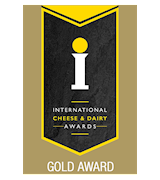Best Southern Dutch Foods
Nonnevot is a unique pastry originating from Limburg, dating back to at least the 17th century. The dough is prepared with flour, yeast, milk, salt, butter, lard, and brown sugar. It is then deep-fried until it develops a golden-brown color. Although nonnevot has traditionally been associated with the carnival, today it can be bought in many regional bakeries.
The unusual name of this pastry means nun's butt, referring to its knotted shape and the knot on the back of a nun's uniform.
Zoervleis is an authentic delicacy originating from the province of Limburg. Although it is traditionally made with horse meat that is marinated in vinegar (hence the name, sour flesh), nowadays there are modern versions which use beef instead.
The stew is additionally enriched by the addition of bay leaves, cloves, peppercorns, appelstroop (apple syrup), and pieces of Dutch gingerbread known as ontbijtkoek. Due to the formation of a thick gravy during the cooking process, zoervleis is almost always accompanied by fries, similar to the wildly popular Canadian poutine.
Vlaai is a sweet pie originating from the province of Limburg. It consists of a yeast pie base and a filling of creamy custard which is topped with streusel, a crumbly topping. The pie has a rich history: it was first consumed by Germanic tribes who used to drizzle the dough with fruit juice or honey, and later, it was used in monasteries as a special, sacrificial bread.
Over the years, vlaai was brought over to Maastricht, where it was used for festivities and celebrations such as birthdays and weddings. Today, there are numerous varieties of vlaai–filled with chocolate, rice pudding, or fruits such as cherries, strawberries, apples, and bananas.
A typical snack from the Dutch province of North Brabant, worstenbroodje is a meat-filled roll that is especially popular during the colder winter months. The dough is made with flour, milk, yeast, sugar, butter, and eggs, while the filling is usually made with ground beef and pork, eggs, milk, breadcrumbs, and flavorings such as salt, pepper, nutmeg, and chopped parsley.
Shaped into an elongated oval, these sausage rolls are baked in an oven until their exterior becomes golden-brown and crunchy.
Worstenbroodjes are a Brabant specialty consisting of bread rolls filled with meat (usually ground pork and beef), spices, and herbs such as pepper, nutmeg, and parsley. These savory rolls are consumed throughout the year, but they are especially popular during the colder months in the Netherlands.
It is recommended to brush the rolls with egg wash and bake them until they develop a golden-brown color on the crust.
Bossche bol is a Dutch specialty from s'Hertogenbosch: a traditional, chocolate-coated, whipped cream-filled pastry. These pastry balls are characterized by their large size, which is why they are often served with forks, knives, and a number of napkins to clean the inevitable mess made while consuming them.
It is believed that the sweet treat was invented by Henri van der Zijde in 1920. Today, bossche bollen are traditionally paired with a cup of coffee on the side. There is also a version of Bossche bol that is twice its size, called a reuzenbol, while moorkop is a similar pastry, but much smaller.
Rijestevlaai is a creamy, rice pudding-based dessert that is popular in the Netherlands, Belgium, and Germany. The cake consists of a single crust that is topped with rice pudding. Rijstevlaai is best served cold, usually on Sundays, at birthdays, weddings, and retirement parties.
Vlaai, or flat pies, were originally invented by Germanic tribes who used to spread out the dough over a hot stone and top it with honey or fruit juice in order to make it more flavorful. As time went by, the dough became thinner, and the toppings larger, resulting in numerous flat pies we know and love today.
Best Southern Dutch Food Producers
Amalthea B. V. is a cheese producer based in the Netherlands that specializes in goat cheeses. The company supplies a variety of goat cheese formats, including wheels, logs, and slices, focusing on both the domestic and international markets. Amalthea B.
V. is involved in sustainable farming practices and collaborates with local goat farmers.
AWARDS

World Cheese Awards - Super Gold
2022

World Cheese Awards - Gold
2022
BEST Amalthea B.v. Cheeses
AWARDS

International Cheese Awards - Gold
2024, 2023, 2022
BEST Bettine Cheeses
't Nipperke is a distinctive liqueur originating from the Brabantse Kempen region in the Netherlands. Crafted from pure natural ingredients without added fragrances or flavorings, it combines flavors of caramel and cinnamon with subtle hints of vanilla and almond.
The liqueur was conceived by Bart Imming and Robby Verhagen, owners of Dinee Cafe de Kempen in Knegsel. In 2011, they sought to create a unique house drink for their guests, leading to the development of 't Nipperke. After numerous tests and tastings, they finalized a recipe that was officially launched on March 1, 2012, coinciding with the café's 10th anniversary.
AWARDS

SFWSC - San Francisco World Spirits Competition - Double Gold
2023
BEST Ron Colón Salvadoreño Spirits
AWARDS

International Beer Challenge - Best Lager above 5%
2023
BEST Swinkels Family Brewers Beers
AWARDS

London IOOC - Platinum
2022
BEST Residelca Olivos Olive Oils
Best Southern Dutch Food Products
AWARDS

World Cheese Awards - Super Gold
2022
AWARDS

International Cheese Awards - Gold
2024, 2023, 2022
't Nipperke is a delightful liqueur hailing from the Brabantse Kempen region in the Netherlands. Crafted from pure natural ingredients without added fragrances or flavorings, it offers a harmonious blend of caramel and cinnamon flavors, accented by subtle notes of vanilla and almond.
The 0.5L luxury bottle is the larger variant of their designer series, standing at 300mm in height and 70mm in width. Once enjoyed, this elegant bottle can be repurposed as a charming flower vase, adding a touch of sustainability to its appeal. With an alcohol content of 14.5%, 't Nipperke is versatile in its enjoyment.
AWARDS

London Spirits Competition - Gold
2024
AWARDS

SFWSC - San Francisco World Spirits Competition - Double Gold
2023
AWARDS

International Beer Challenge - Best Lager above 5%
2023
AWARDS

World Beer Awards - Gold
2023
AWARDS

World Beer Awards - Gold
2023
AWARDS

International Brewing Awards - Gold
2021
AWARDS

London IOOC - Platinum
2022
TasteAtlas food rankings are based on the ratings of the TasteAtlas audience, with a series of mechanisms that recognize real users and that ignore bot, nationalist or local patriotic ratings, and give additional value to the ratings of users that the system recognizes as knowledgeable. TasteAtlas Rankings should not be seen as the final global conclusion about food. Their purpose is to promote excellent local foods, instill pride in traditional dishes, and arouse curiosity about dishes you haven’t tried.












